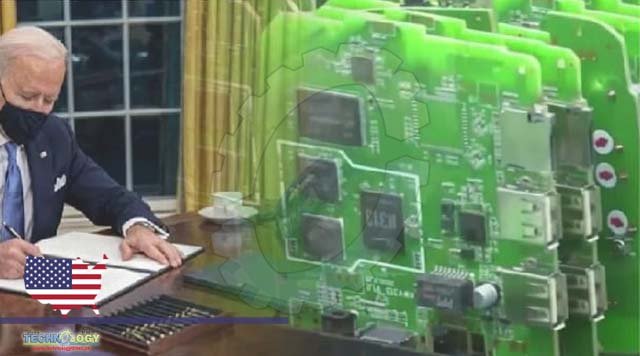The U.S. government is making a giant investment in the tiniest of things: chips. President Biden signed the “Chips and Science Act” Tuesday, in an effort to boost U.S. competitiveness over China in the semiconductor industry.

The U.S. government is making a giant investment in the tiniest of things: chips. President Biden signed the “Chip and Science Act” Tuesday, in an effort to boost U.S. competitiveness over China in the semiconductor industry. “We’re leading the world again for the next decades!” exclaimed President Joe Biden The $280 billion-dollar bipartisan Chips and Science Act includes around $52 billion in subsidies for U.S. chip companies, $24 billion in tax credits for new manufacturing facilities, and tens of billions of dollars for research and development. “It’s in our economic interest and in our national security interest to do so,” said the President. Lawmakers and administration officials have also described the industry as critical to national security in reducing foreign dependence. “We’re going to construct an entire semiconductor ecosystem right here in the United States of America,” said Commerce Secretary Gina Raimondo. Manufacturers are not wasting any time. Tuesday, Micron announced a $40 billion plan to boost domestic memory chip production. And the newly partnered Qualcomm and GlobalFoundries is expanding a plant in upstate New York. But these investments aren’t likely to solve the pandemic-induced global shortages right away. As GlobalFoundries CEO Tom Caulfield told CBS News, “Just the complexity of technology that it takes years to put capacity on, and I think for the better part of the next 5 to 10 years, we’ll be chasing supply in this industry.”
Source: This news is originally published by kcci